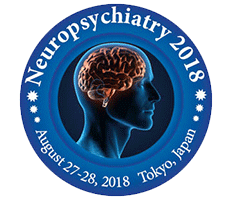
Violeta Kateva
St. Naum Hospital, Bulgaria
Title: The effects of high frequency repetitive Transcranial Magnetic Stimulation in patients with Multiple Sclerosis
Biography
Biography: Violeta Kateva
Abstract
We studied the effect and safety of 10day treatment with high frequency (15 Hz) repetitive transcranial magnetic stimulation (rTMS) applied bilaterally over the primary motor cortex in patients with multiple sclerosis (MS) in clinical settings. We investigated a heterogeneous group of 35 patients with MS-31 with spasticity, 32 with decreased muscle strength, 14 with mood disturbances, 23 with bladder control impairment, 11 with bowel control impairment and 13 with fatigue.
Methods: We used the Modified Ashworth Spasticity Scale; the five-point scale for muscle strength; Timed 25foot walk test; Beck's Depression Inventory; Bladder and Bowel Control Scales from the Multiple Sclerosis Quality of Life Inventory and Fatigue Severity Scale. The patients were evaluated on the first and on the last day of treatment. For statistical comparison of the results before and after treatment we used Wilcoxon Signed Rank Test.
Results: All the symptoms, excluding fatigue, were significantly improved. Twenty-four patients did the Timed 25 Foot Walk Test and 16 (67%) had clinically significant improvement. None of the patients had any serious adverse events.
Conclusions: Repetitive TMS is beneficial in the management of motor, affective, bladder and bowel symptoms in patients with MS. The procedure has excellent safety profile.

